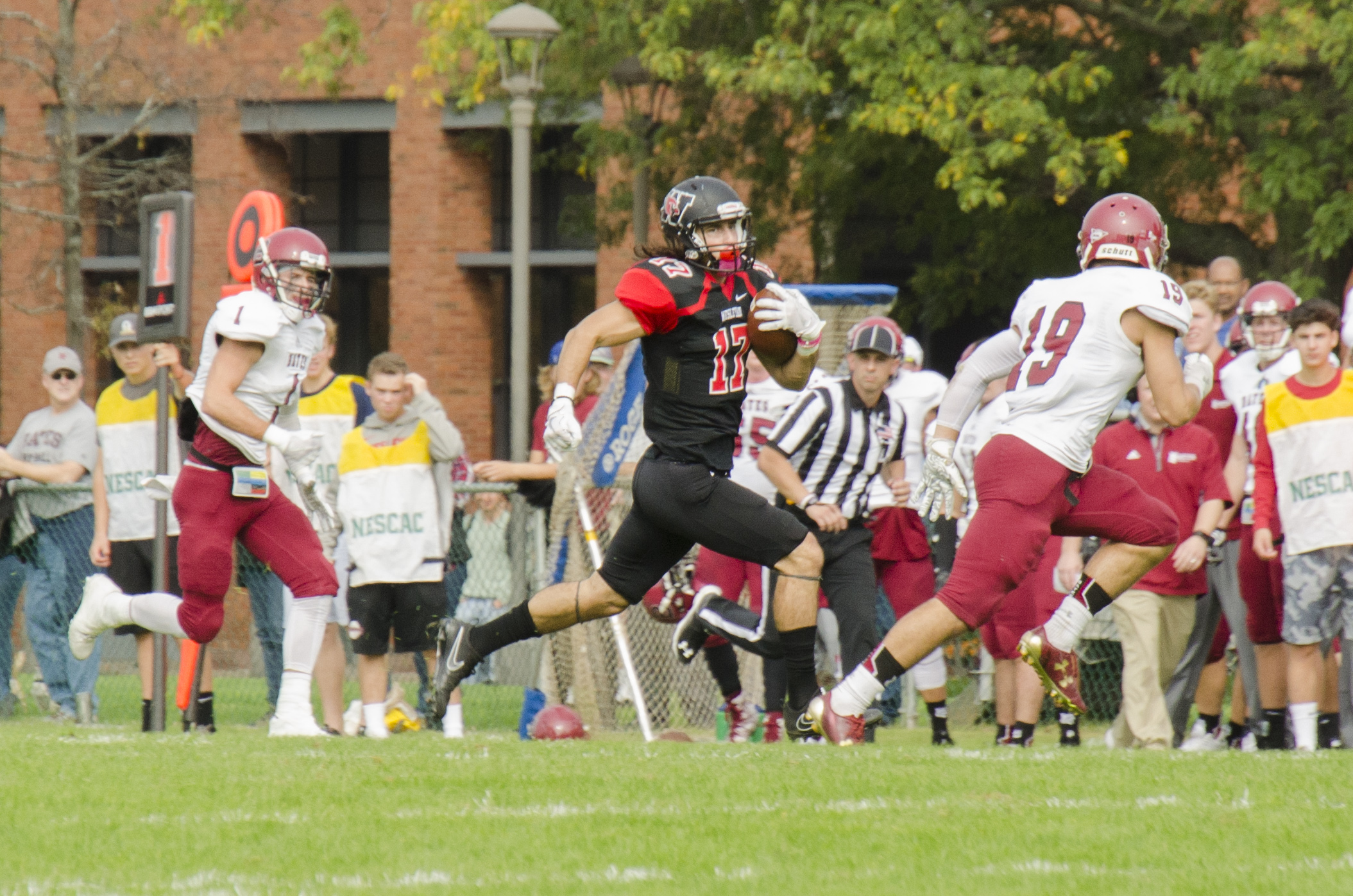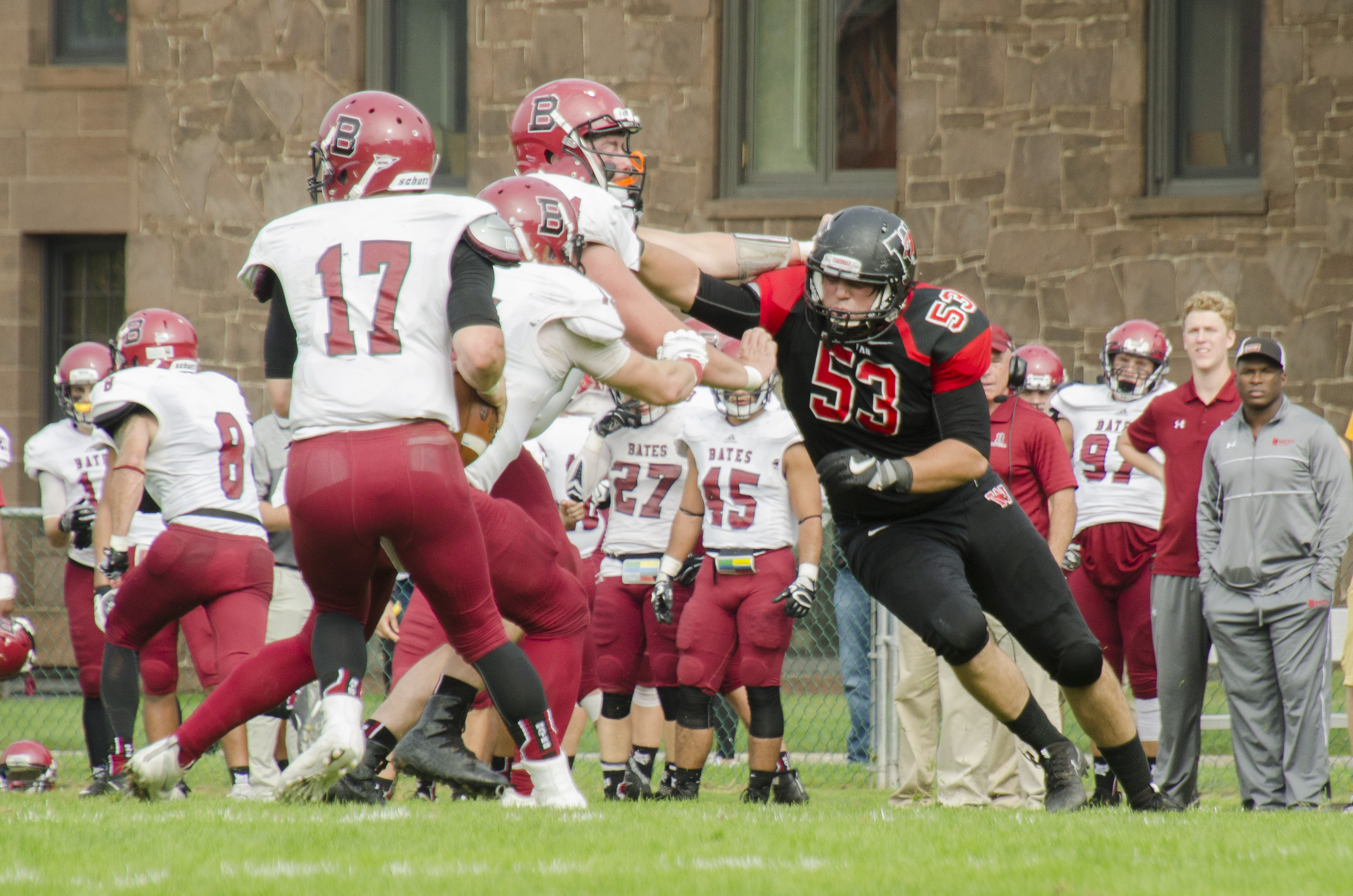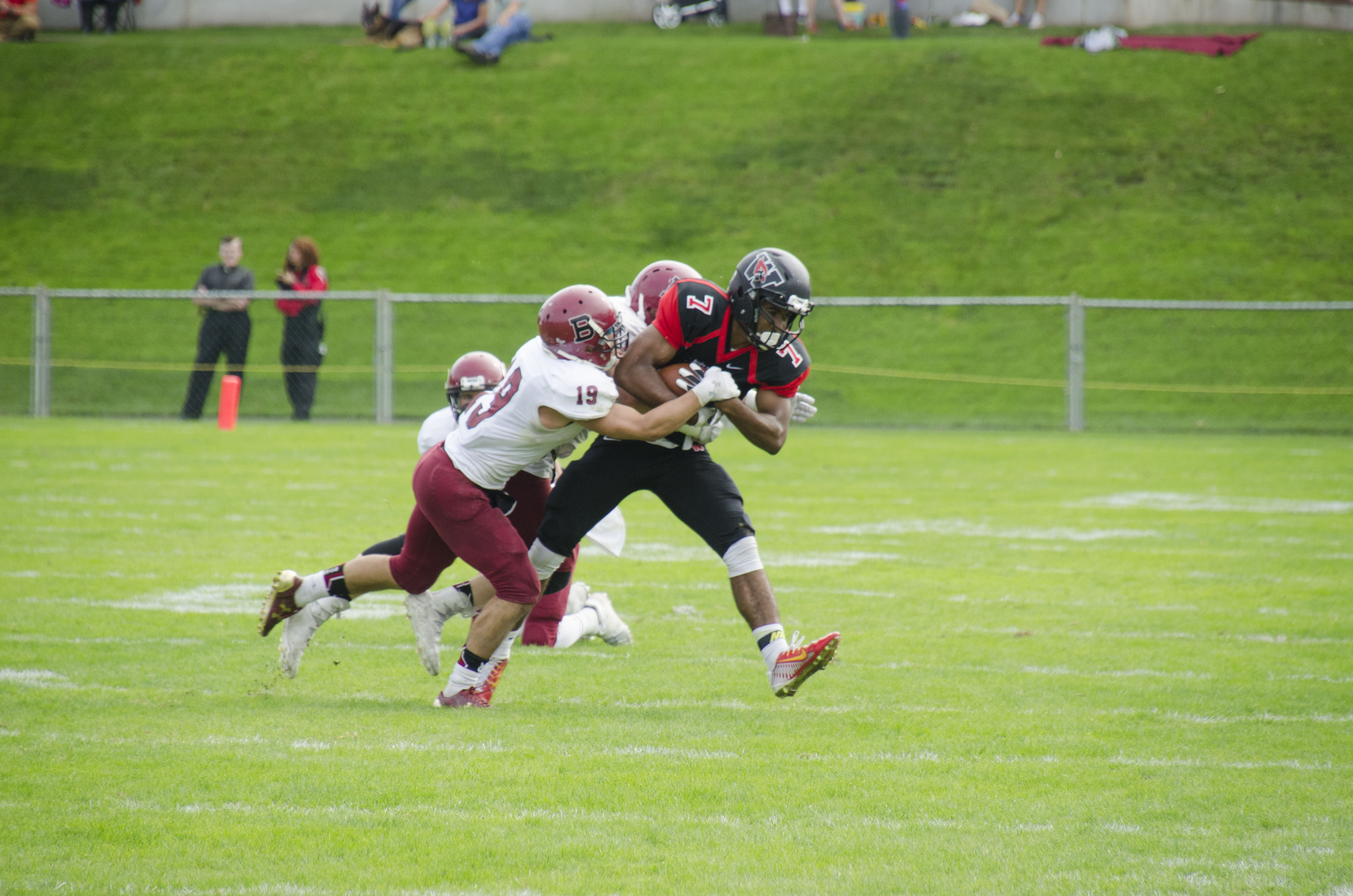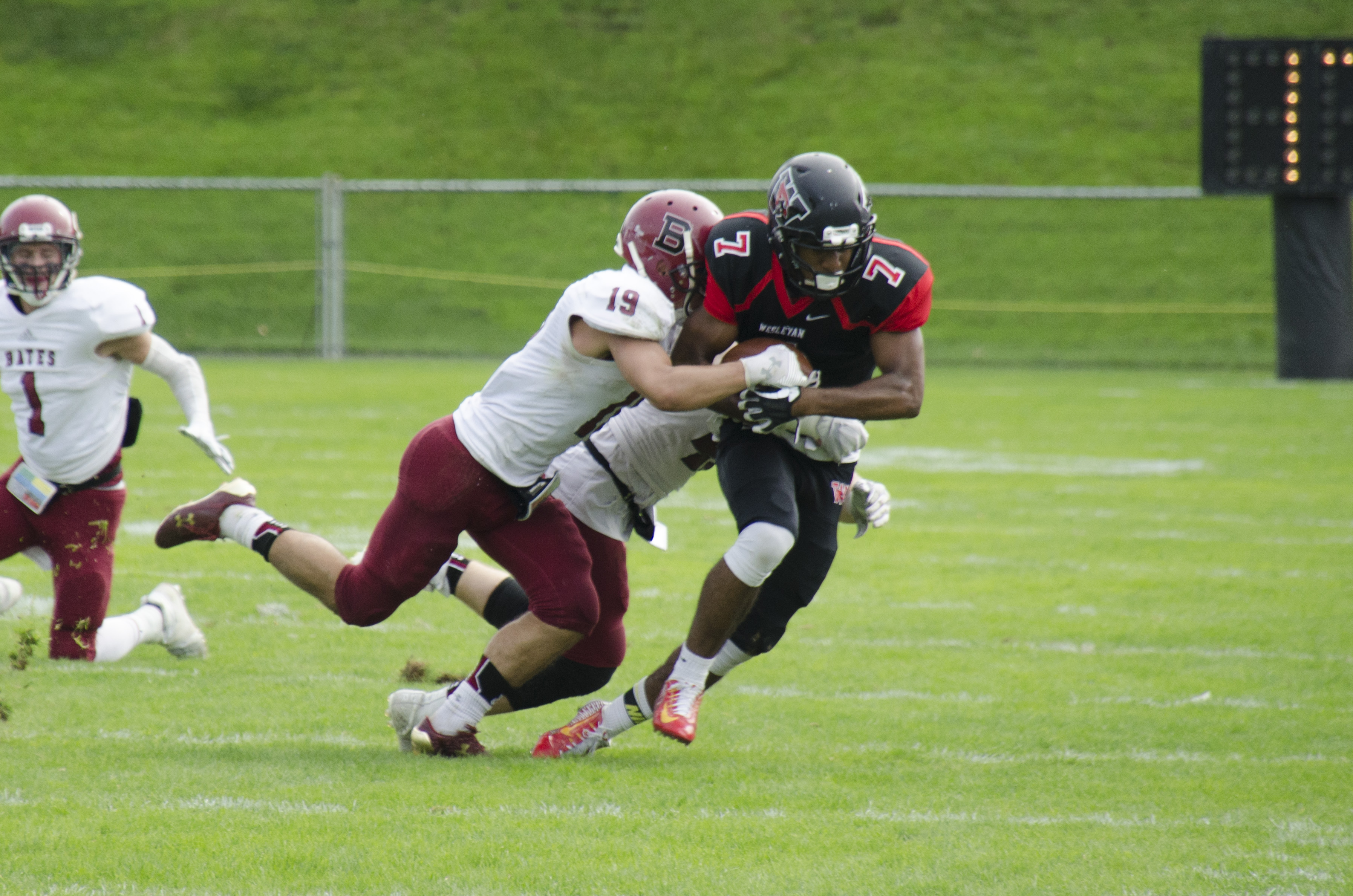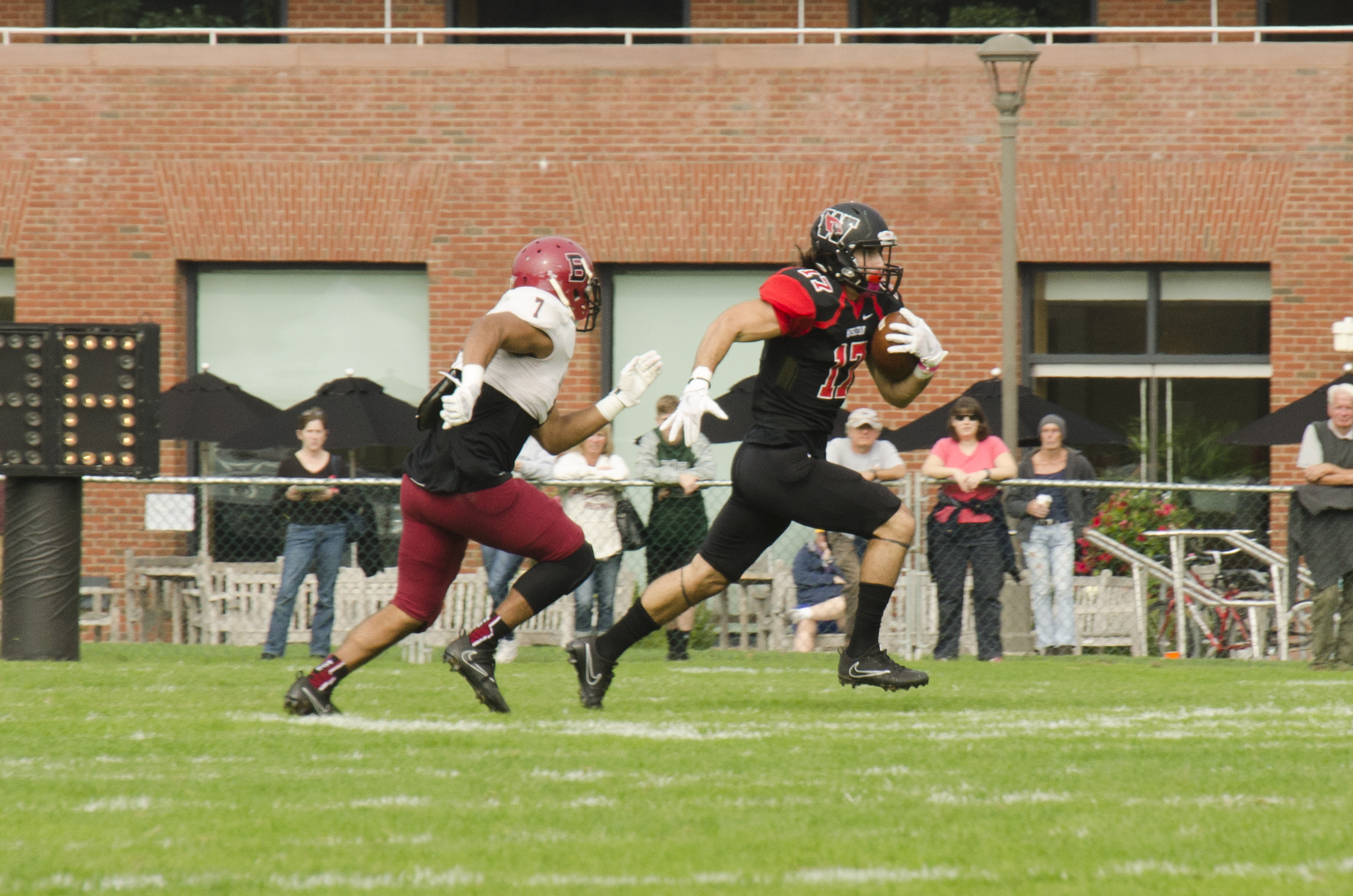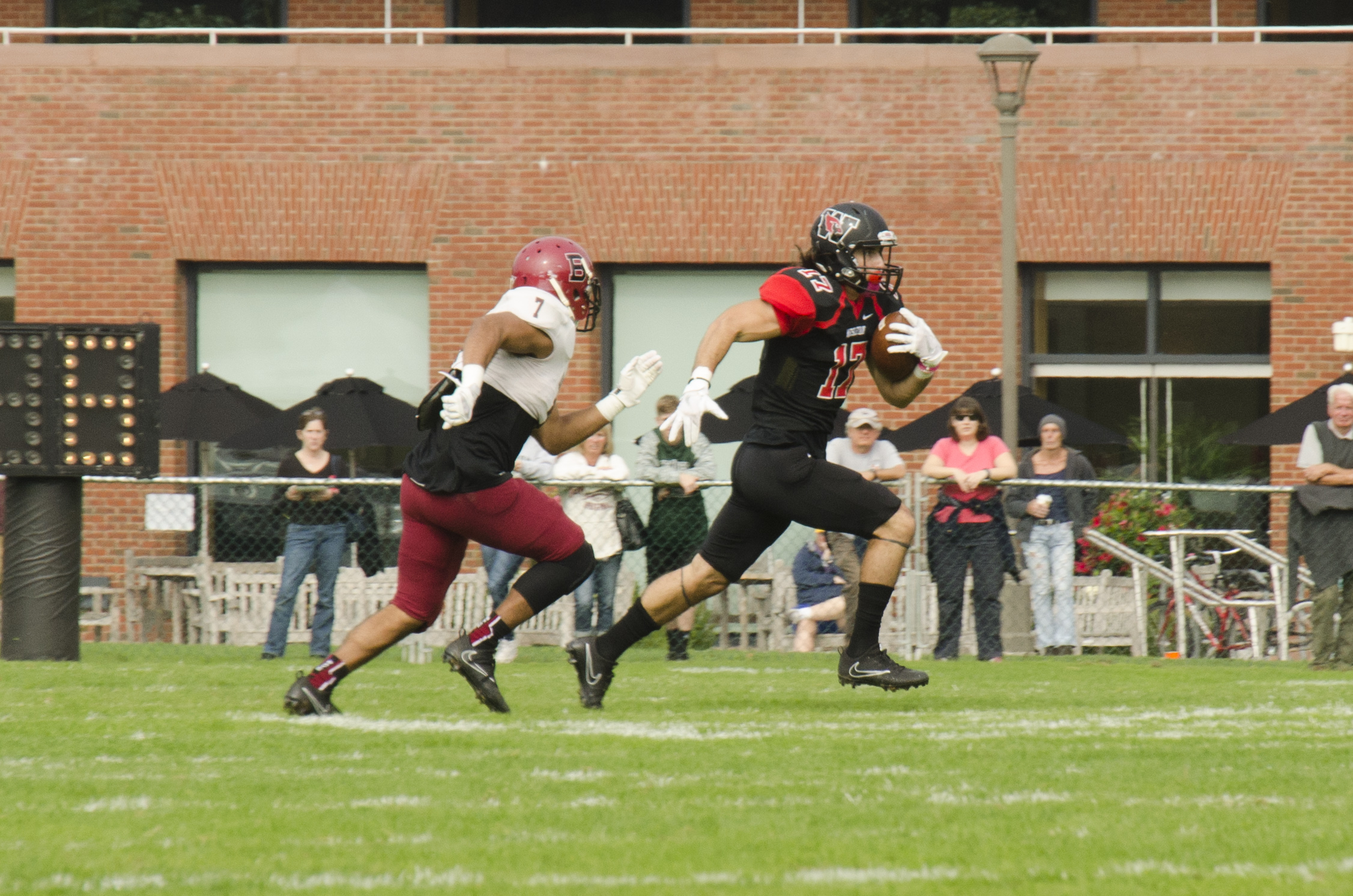
c/o Camille Chossis, Staff Photographer
This week’s victory over Bates improved the Cards’ football record to 4-1 and extended their winning streak to four straight games. After a strong showing last week against Colby, the Red and Black was a bit lackadaisical to start Saturday’s contest against Bates, as it quickly fell behind, but that didn’t last long. Wesleyan managed to cut down its turnovers, which had been an issue up until this point, but committed a bevy of penalties, which it had improved upon in games prior. Mark Piccirillo ’19 had yet another strong game, completing over 70 percent of his passes to go along with over 350 yards passing and two touchdowns. On defense, linebacker Brandon Morris ’19 seemed to be everywhere, amassing a quarter of the team’s solo tackles with 10 of his own, including two tackles for loss.
The game started slowly; both teams struggled to get the ball moving on offense, but Bates put together a touchdown drive from its own 8-yard line quickly, running the ball all the way to the goal line on its second drive. While Bates began to build a rhythm, Wesleyan lagged behind on both on offense and defense as it was forced to punt and subsequently gave up another touchdown to Bates. Suddenly, the game changed when Piccirillo unleashed a 48-yard bomb downfield to star receiver Mike Breuler ’18 and eventually ran the ball in himself from 22 yards out. The Dirty Birds were back.
The Wesleyan defense forced Bates to pass the ball and to then punt, allowing Piccirillo and the offense to drive back up the field as they opened up the second quarter with another beautiful long ball from Piccirillo to Breuler, this time for 45 yards. Sean Penney ’21 ran it in for a touchdown to tie the game, 14-14. Though the Cards’ defense stopped Bates on 4th down, Piccirillo gave the ball back in the red-zone on an interception that led to an easy touchdown for the opposition, bringing the game to 20-14 after a missed PAT. Thanks to a Bates penalty on the kickoff, Wesleyan’s offense started on our 42-yard line and methodically drove down the field to reclaim the lead with another touchdown from Penney. Despite a strong tackle for a loss by Morris, the Bobcats broke away on the next play for a 38-yard run but couldn’t find their way into the end zone, settling for a field goal.
Despite being marred by a few penalties, the Cardinals started the third quarter well, seizing a lead they would keep for the rest of the game, 24-23. In addition, the defense came back with a bang, forcing a three and out, immediately giving Wesleyan the football back. Once again, Piccirillo switched on and orchestrated another strong touchdown drive behind his arm, throwing a long ball and a touchdown to Gernald Hawkins ’18.
Bates continued to struggle offensively and was forced to punt again after another set of downs. Yet the Cards’ offense failed to capitalize on this opportunity and punted on the last drive to start off the fourth quarter. Bates punted once again, and despite the Cards’ best efforts, they were left just short of the goal line and had to settle for a field goal from the Bates three-yard line after a strong drive behind Piccirillo. However, after Bates turned the football over on downs, the Cardinals were able to make the most of their opportunity as they scored the last touchdown of the game, sealing it at 41-23. Bates attempted to rally for one last drive but ran out of time at the Wesleyan 30-yard line as the final horn sounded.
Next week, Wesleyan has its first Little Three game against Amherst, who is also 4-1, with its lone loss to Middlebury. It should be a highly competitive game—both teams boast potent offenses and defenses that have kept opponents in check. Wesleyan’s prospects of victory on Saturday look promising, but it’s vital that the Cardinals do not rest on the laurels of their earlier victories. This will be one of the toughest games of the season and the first step in attaining one of their goals of beings Little Three Champions, a crown that they look to capture for the third consecutive year.
- c/o Camille Chossis, Staff Photographer
Jacques Slaughter can be reached at jslaughter@wesleyan.edu.
